
The 2004 remake of The Stepford Wives starred Nicole Kidman and Matthew Broderick as a couple that moves to the picture-perfect suburbs of Connecticut, only to discover that things may not be as idyllic as they first appear.
The problem with this version is that it’s not sure if it wants to be scary or funny, so it’s not enough of either. The houses that the Stepford families live in are pretty impressive, though, so let’s take a closer look!
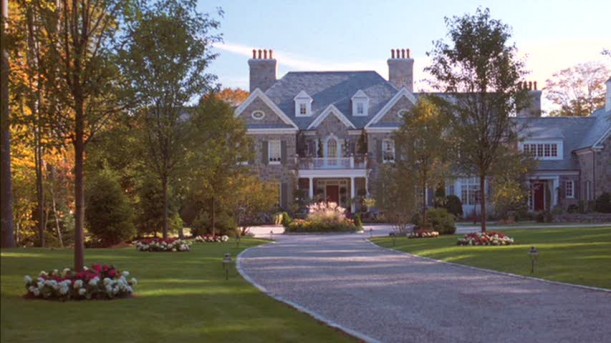
“What we were after when creating the town of Stepford, Connecticut, was a sense of the modern suburb, the McMansion suburb,” screenwriter Paul Rudnick explains. He says that you could go to Connecticut today and find 80,000 square-foot homes inhabited by a husband, wife, and one child, and there is something “both seductive and obscene about that lifestyle.”
Production Designer Jack DeGovia agrees: “It’s a lifestyle that makes no apologies for being luxurious, and the metaphor for that world is the houses that people live in, which are much too big for their lives. It’s like a library with few books.”
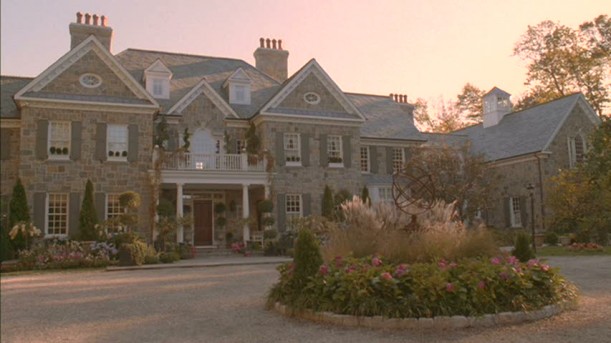
Filming a scene in Joanna’s foyer (from the DVD Special Features):

The interior rooms for Joanna’s house were sets built in a warehouse in Yonkers. Director Frank Oz says, “Whenever you see actors being careful not to open an exterior door too wide, you know they’re probably on a set.”
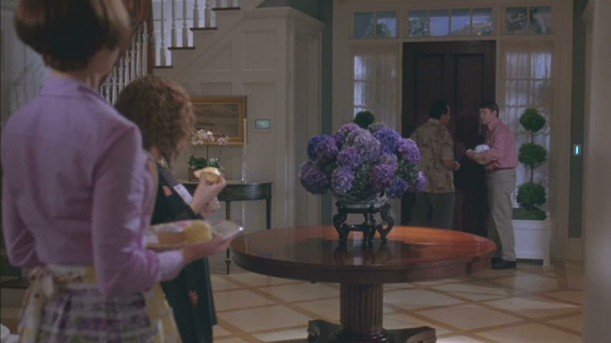
When Joanna, Walter, and their kids first arrive at their new home, it’s empty:
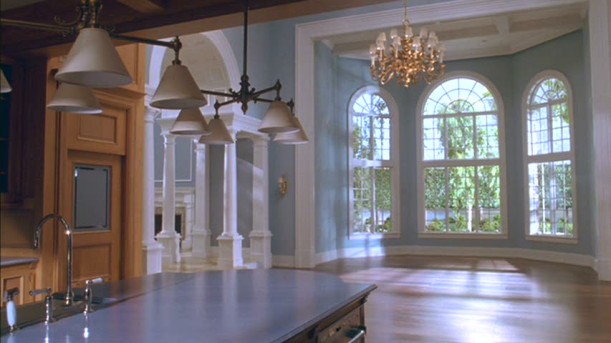
“The look of Stepford is defined as New Money,” Director Frank Oz says. “Everything is spanking new, perfect.”
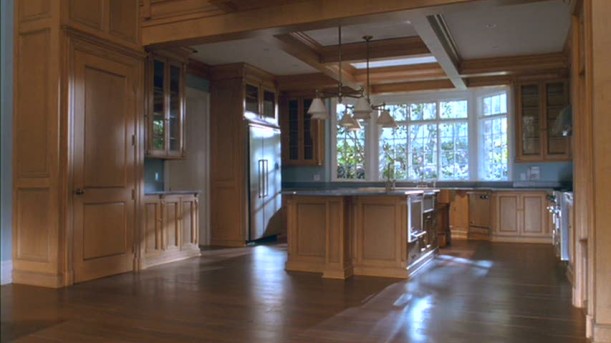
The next morning when Joanna comes downstairs, the whole place is magically furnished and decorated:
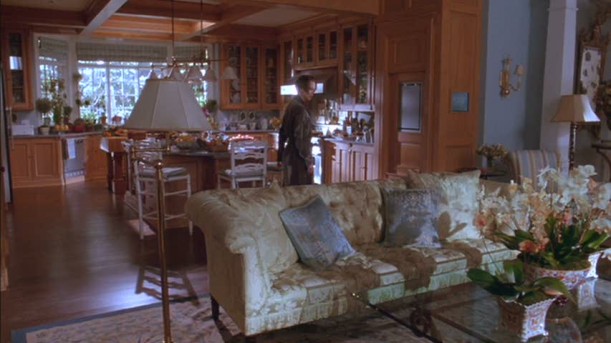
Joanna decides to give the Stepford way of life a shot by donning an apron and cranking out more cupcakes than you can shake a stick at:
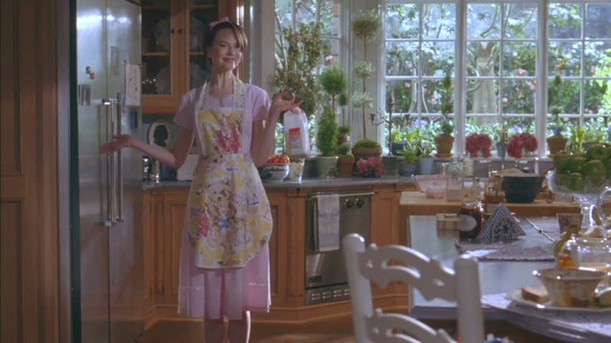
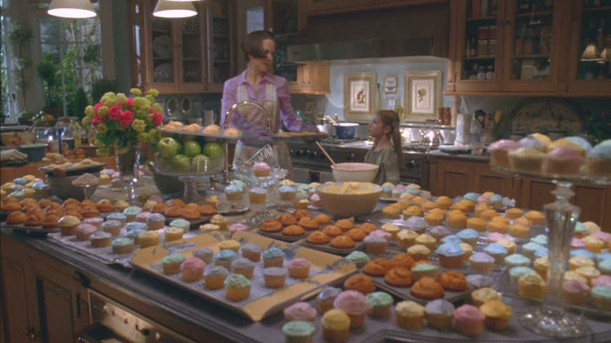
The original 1975 movie was based on a novel by Ira Levin. Katharine Ross (The Graduate) played the role of Joanna, and the movie itself was a spooky thriller. Here’s how Joanna’s house looked in the original:
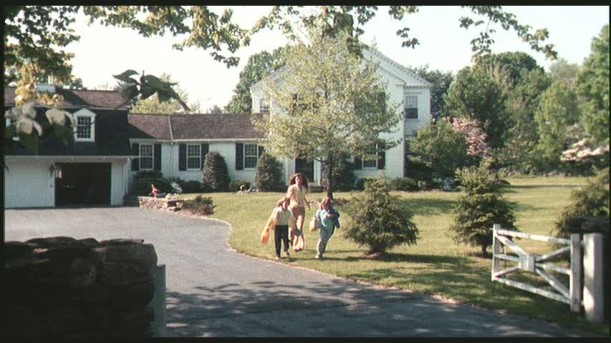
Inside the house in the 1975 version, things weren’t as shiny and new as the one in the remake:
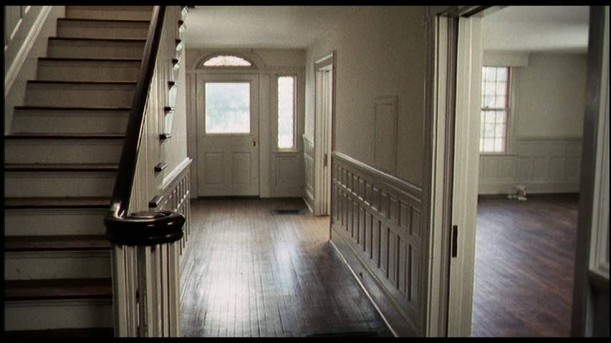
It’s also interesting to compare the kitchens then and now. We expect a lot more from our kitchens these days. In one scene we see them washing their dishes by hand (gasp!):
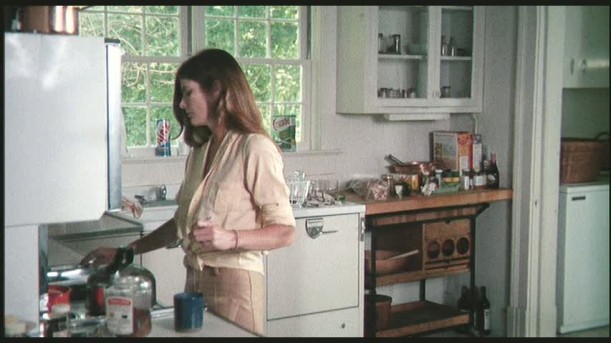
Her friend Bobbie sits at the kitchen table (look how realistically cluttered the countertops and table are–something you just don’t see as much of in movies today):
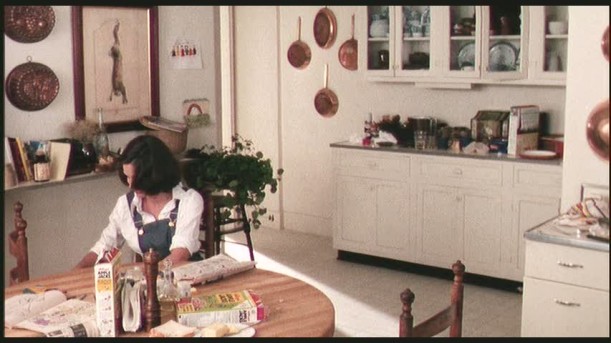
Things are equally cluttered in the living room–the house wasn’t magically furnished and decorated overnight in the original version:
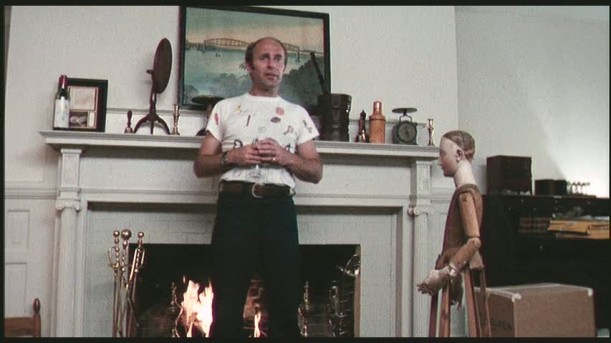
But I digress. Back to the remake, and the perfect house Nicole Kidman lived in:
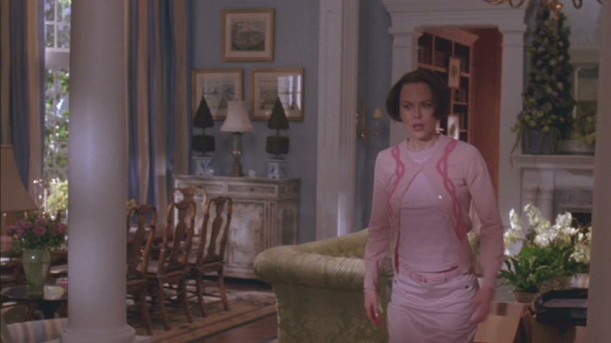
We get a look inside the study when Joanna starts frantically Googling various Stepford wives to see who they were before moving to Connecticut (surprise–they were judges, attorneys, and other high-powered career women like her!).
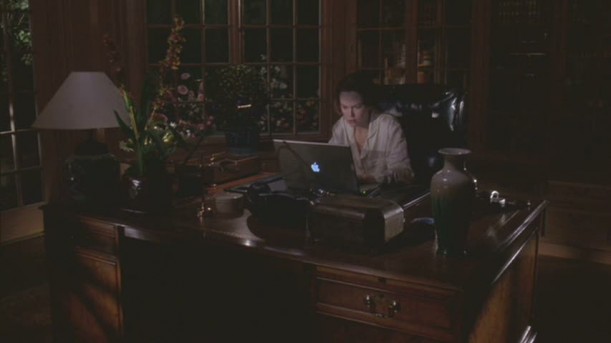
John Cusack was originally cast in the role of Walter Eberhardt. When he dropped out, Matthew Broderick took over. John’s sister Joan was supposed to play the role of Bobbie, but she also pulled out and Bette Midler got the part.
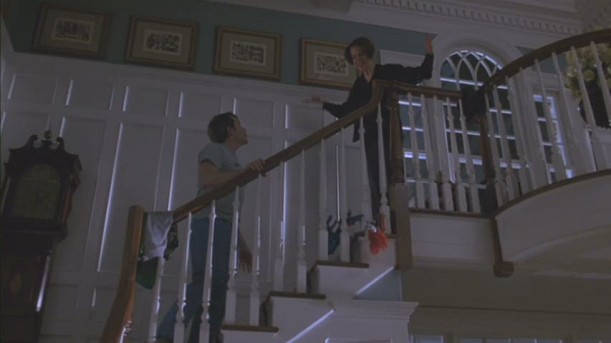
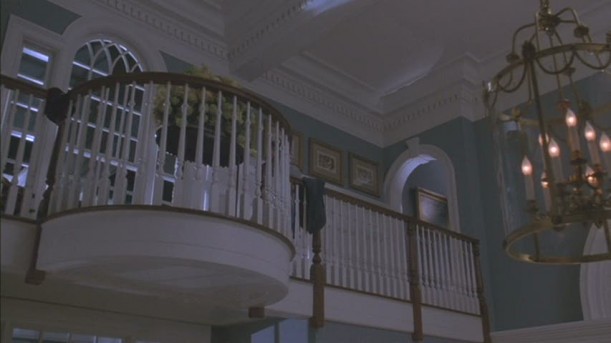
Joanna and Walter’s Bedroom:
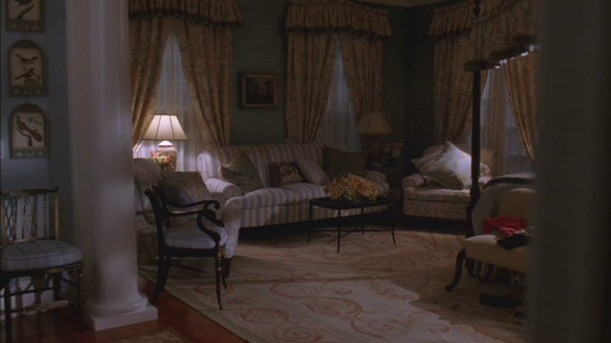
Oz says that the bedroom scenes were filmed in a real house somewhere in Connecticut:
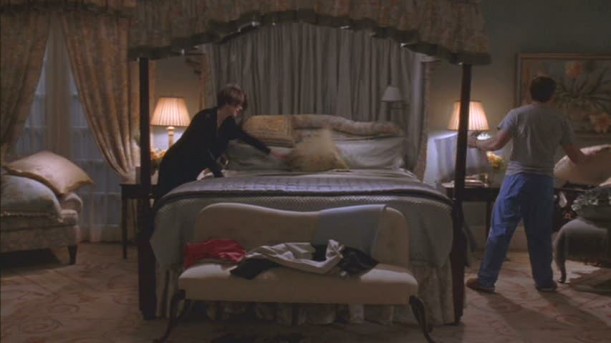
The Stepford Men’s Association:
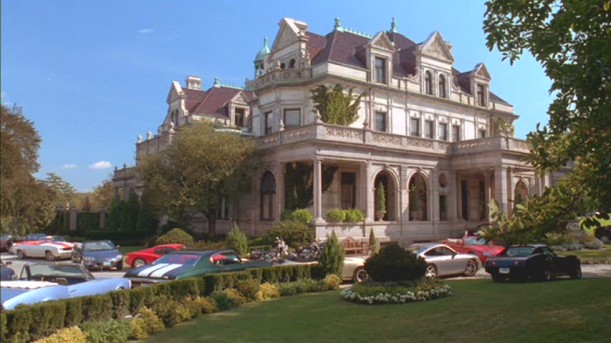
The Stepford Men’s Club was also a set. In one scene, Roger–played by Roger Bart, who you probably remember as Creepy George from Desperate Housewives–says, “I love this space. It’s very Ralph Lauren meets Sherlock Holmes. To me it says ‘I have taste and a scrotum.’”
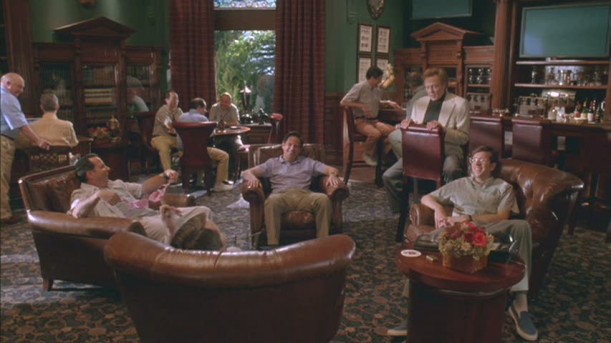
I guess I should mention that if you haven’t seen the movie and don’t want anything spoiled, you might want to stop reading now.
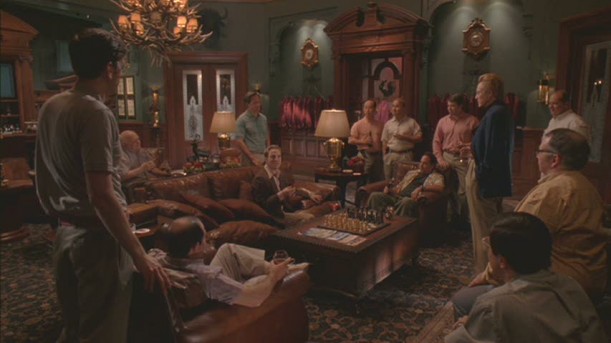
In the DVD commentary, Oz mentions that the Rotunda was a set used in the original “Stepford Wives,” too:
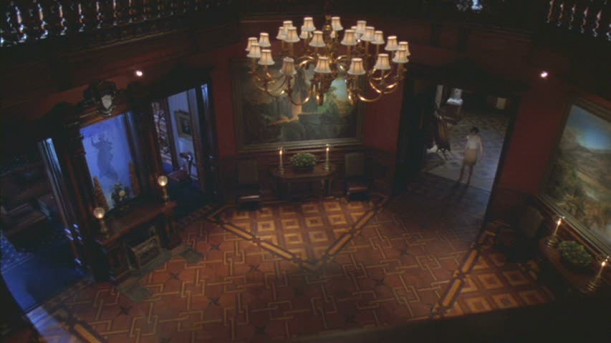
Joanna finds a painting of her family in the men’s club, picturing her as a smiling, blond Stepford wife (cue the “Twilight Zone” music!):
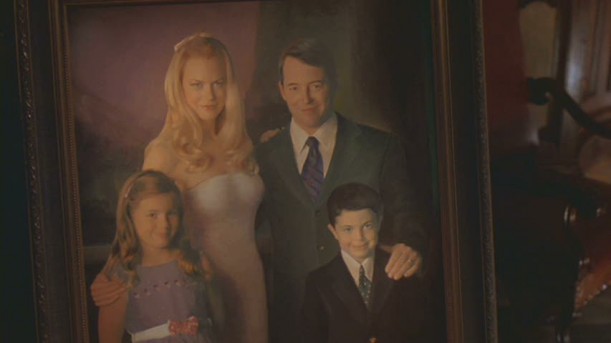
In the next scene, Joanna looks like the image in the painting. Frank Oz says he wanted it to look like she was “floating through the grocery store.” I like how they lined the egg cartons up.

Bobbie’s House:

Before Bobbie (played by Bette Midler in a shaggy, dishwater blond wig) is turned into a Stepford wife, her house is a wreck:
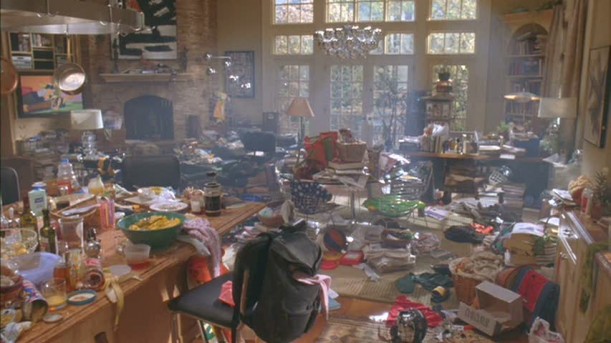
Frank Oz describes Bobbie as “the anti-Stepford wife.” So when Joanna stops by to visit Bobbie a few days later and finds everything looking pristine, she knows something is up:
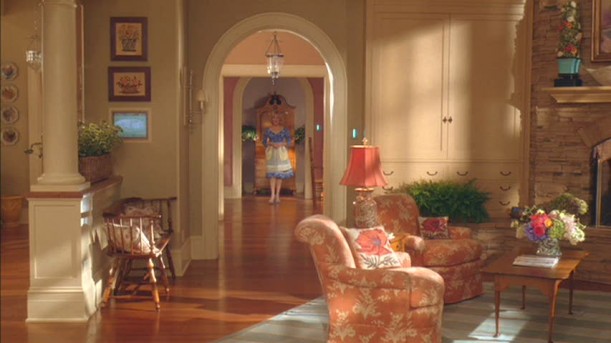
The interiors of Bobbie’s house were created on a soundstage in Queens.
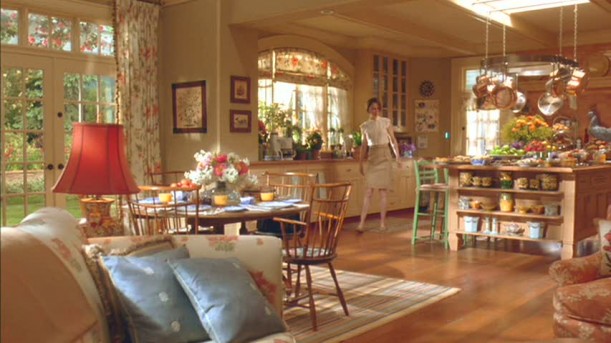
I won’t even pretend to understand the movie’s logic. Are the wives stuck with robotic bodies now even though their brains have been restored? How does that work? They clearly wanted to give the wives a happy ending, but it was all a little strange. The original film went out on a much darker note.
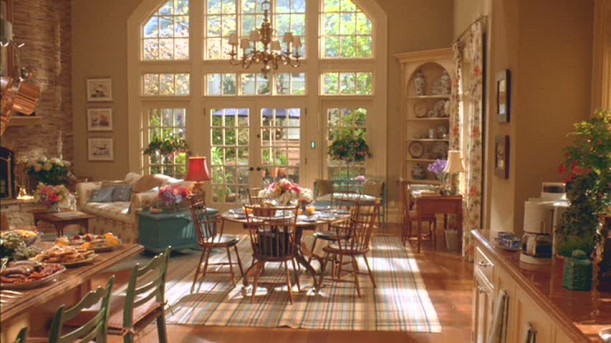
We get a glimpse of the back staircase when Bobbi’s boys come thundering down them:
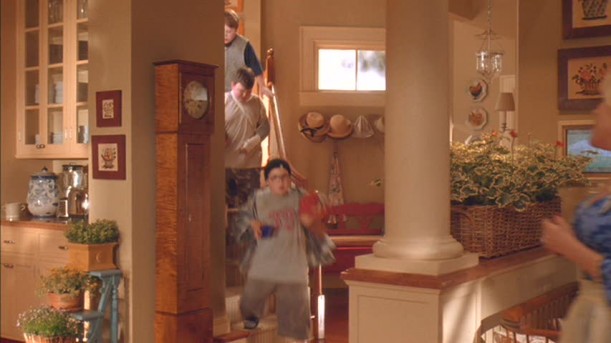
The various house exteriors that are shown throughout the movie were photographed in the suburbs of Connecticut. I love the back of this house where the women meet for a tea party:
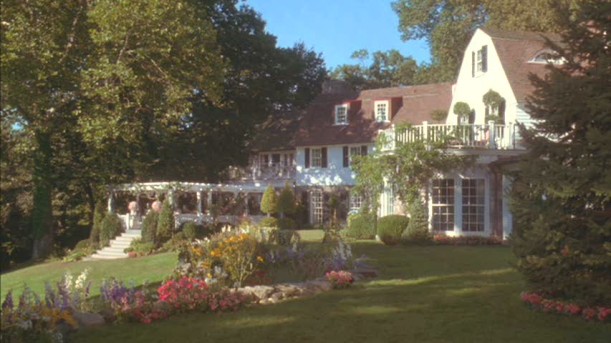
Glenn Close’s character Claire asks, at the end of the movie, “Where would people never notice a town full of robots? Connecticut!”
Frank Oz has given us some great “house movies” over the years that I’ve featured before, including Death at a Funeral and one of my all-time favorites, Housesitter. And unlike some other filmmakers, he is always good about giving us some lingering shots on the rooms and then talking about the sets in the DVD commentaries. Thanks, Frank!
Go to TV/Movie Houses to see more!




No comments:
Post a Comment